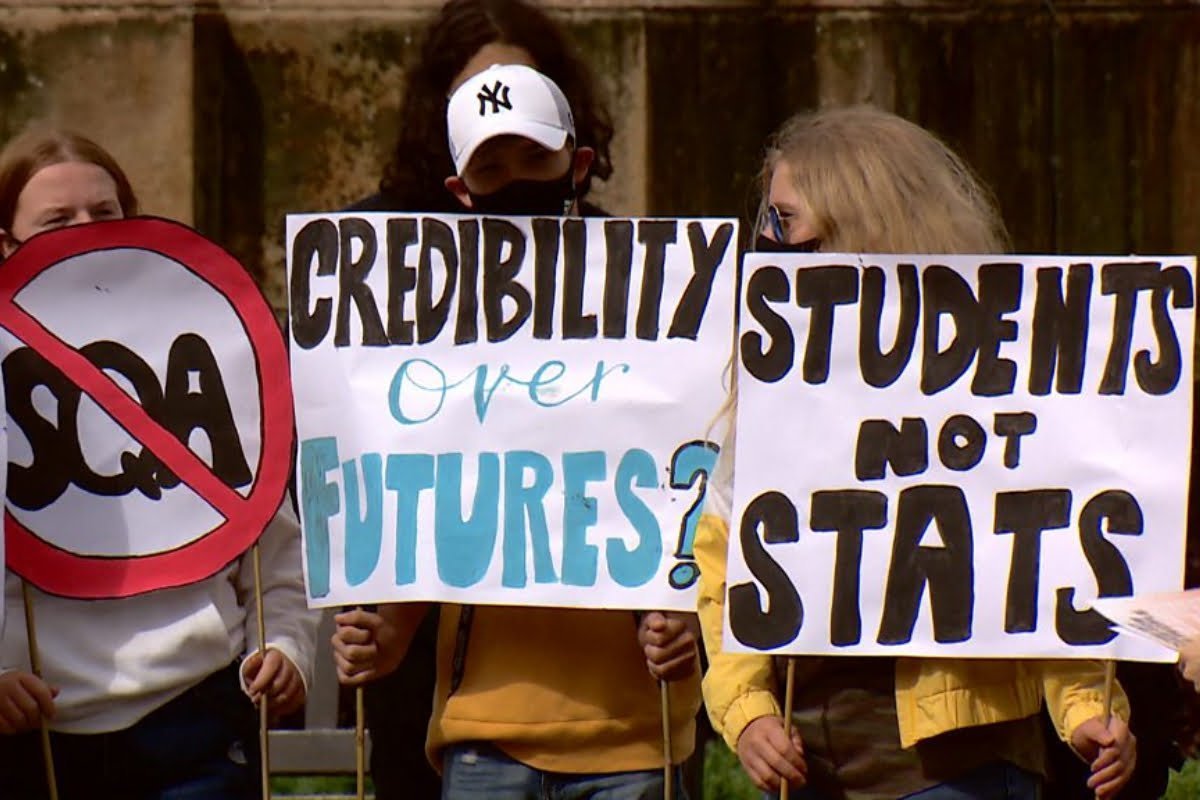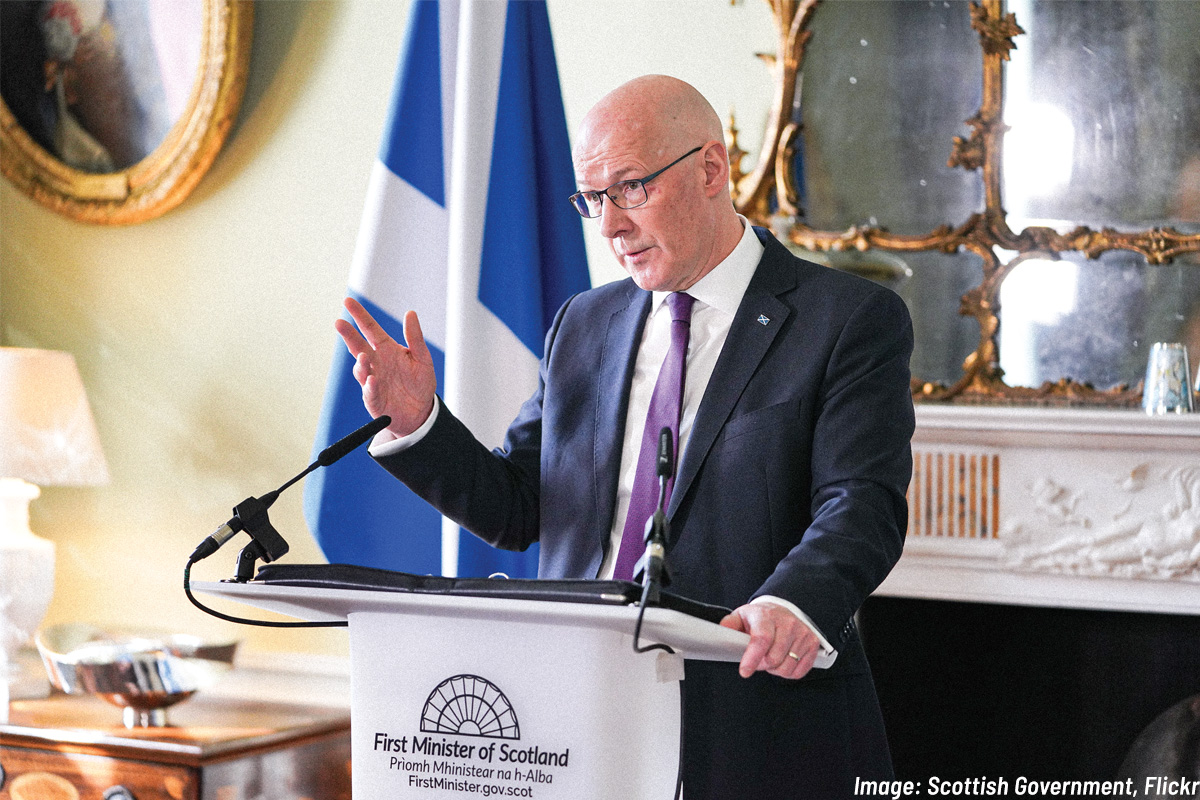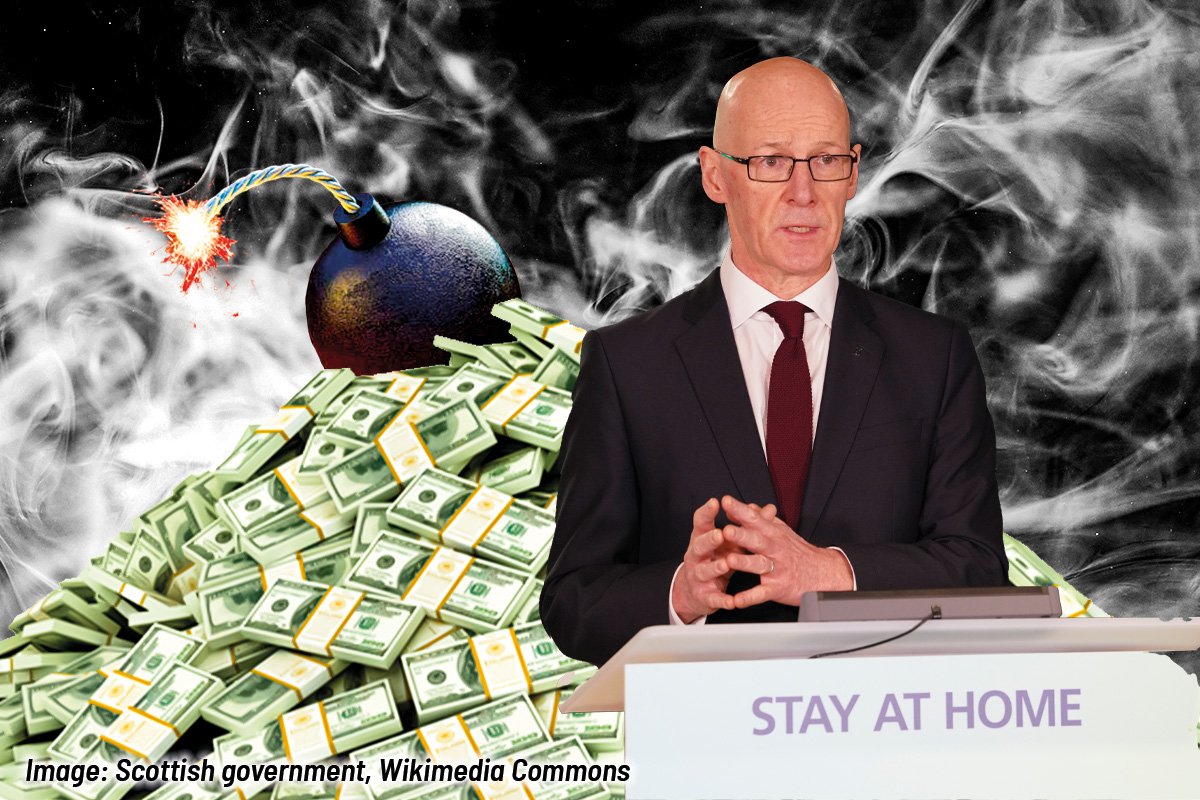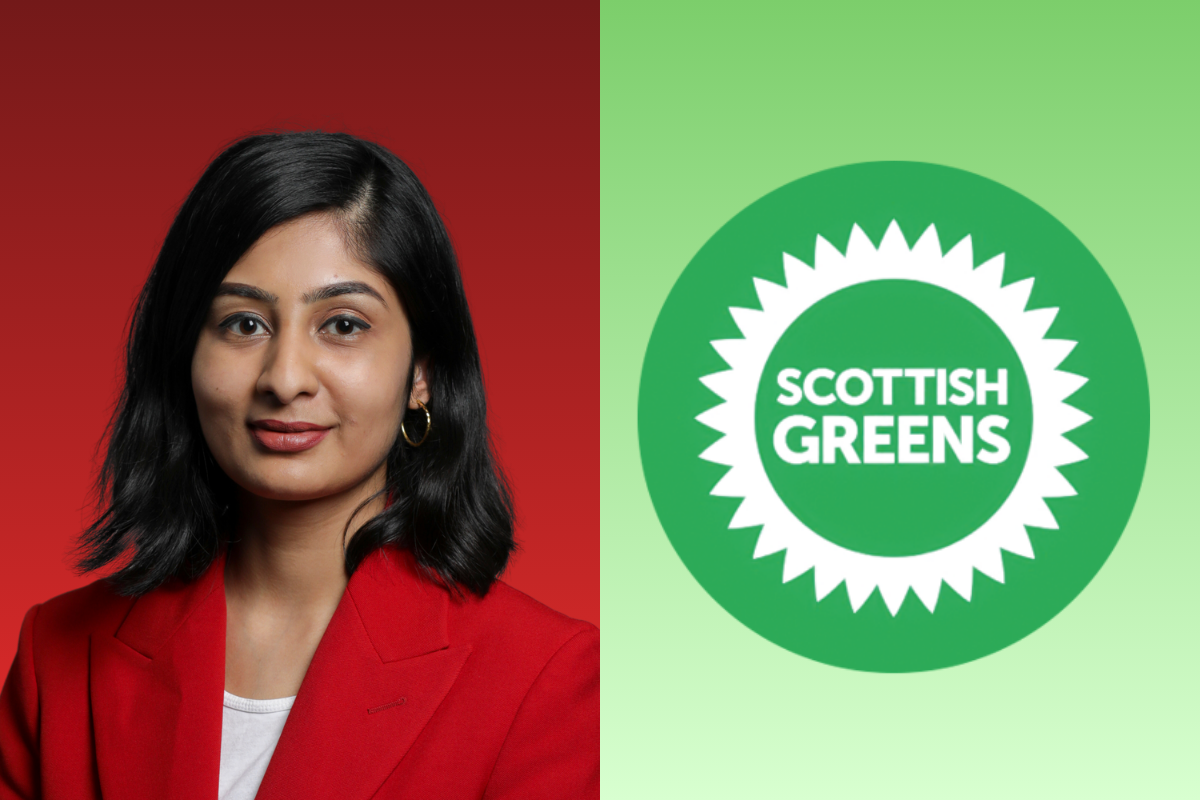The Scottish government has provoked a furore amongst school students by deploying a “postcode lottery” exam results system that discriminates based on class backgrounds. Capitalism is institutionalised inequality.
The allegedly progressive track record of the SNP on education has recently had its scandalous shortcomings exposed once again.
The approach of the Scottish government and the SQA [Scottish Qualifications Authority] towards exam grades during the pandemic has led to anger and devastation being felt by thousands of students across the country. Scottish students are being robbed of their futures by an unfair system of distributing grades.
Results
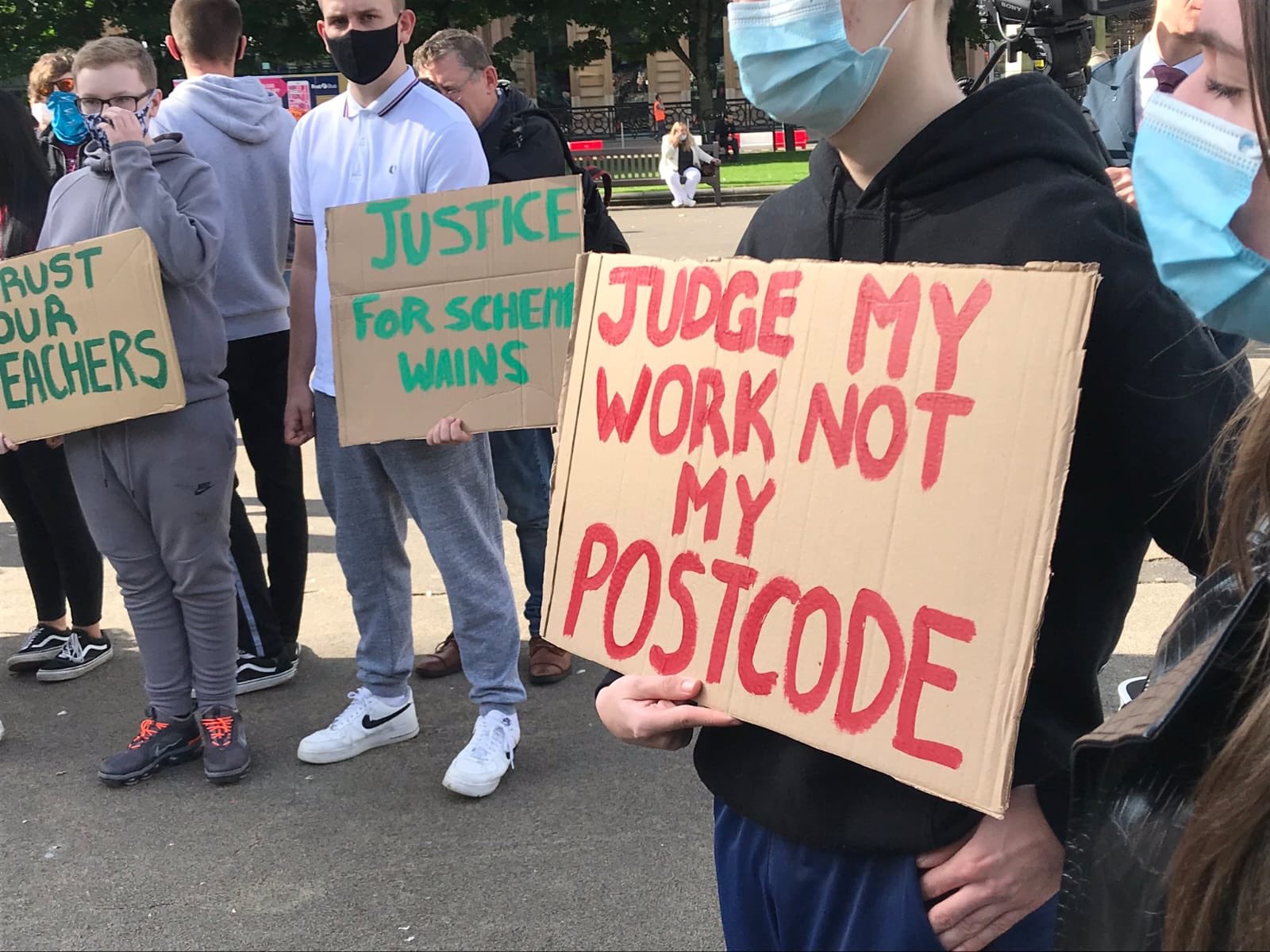 On 17 March, the Holyrood government decided to cancel exams for the first time in Scotland’s history, due to school closures caused by the pandemic.
On 17 March, the Holyrood government decided to cancel exams for the first time in Scotland’s history, due to school closures caused by the pandemic.
During his announcement, Cabinet Secretary for Education and Skills John Swinney said that grades would be based on “coursework, teacher assessments of estimated grades and prior attainment”. The SQA later announced, however, that coursework would not be marked.
In the months between this announcement and results day, concerns were already being raised by MSP’s about the fairness of how grades would be decided.
On 4 August, students’ grades were announced. People immediately noticed differences between their estimated grades or prelim grades, and the final grade they were given by the SQA. Some people found themselves with a C grade when they got 79% in the prelim; others failed their Advanced Highers, despite having predicted C grades and getting A’s in their Highers.
It soon became clear that certain groups of people were affected more than others.
In particular, there is a clear difference between estimated and given grades across schools from areas with different levels of poverty. In the most deprived 20% of schools, teachers estimated that 85.1% of students would get a passing grade, though only 69.9% ended up getting one – a gap of 15.2%.
As we move up the deprivation scale, the gap between the estimated and given grades begins to shrink: 12.5% for schools with in the 20-40% SIMD (Scottish Index of Multiple Deprivation) bracket; 10.9% for those in the 40-60% bracket; then 9% for the next; and finally a mere 6.9% difference in schools in the least deprived areas of Scotland.
At short notice, a demonstration was organised for early on 7 August outside the SQA offices in Glasgow, which was eventually moved to George Square. Around 100 gathered to protest against what they see as discrimination and a contemptuous attitude towards the ability of students from poorer backgrounds.
At the same time, more than 35,000 people have signed an online petition protesting the “classist marking scheme” deployed by the SQA.
“We will not stand back and take this,” asserted Erin Bleakley, the teenage organiser of the Glasgow protest. “We are not determined by our postcodes.”
Classism
So how did this happen?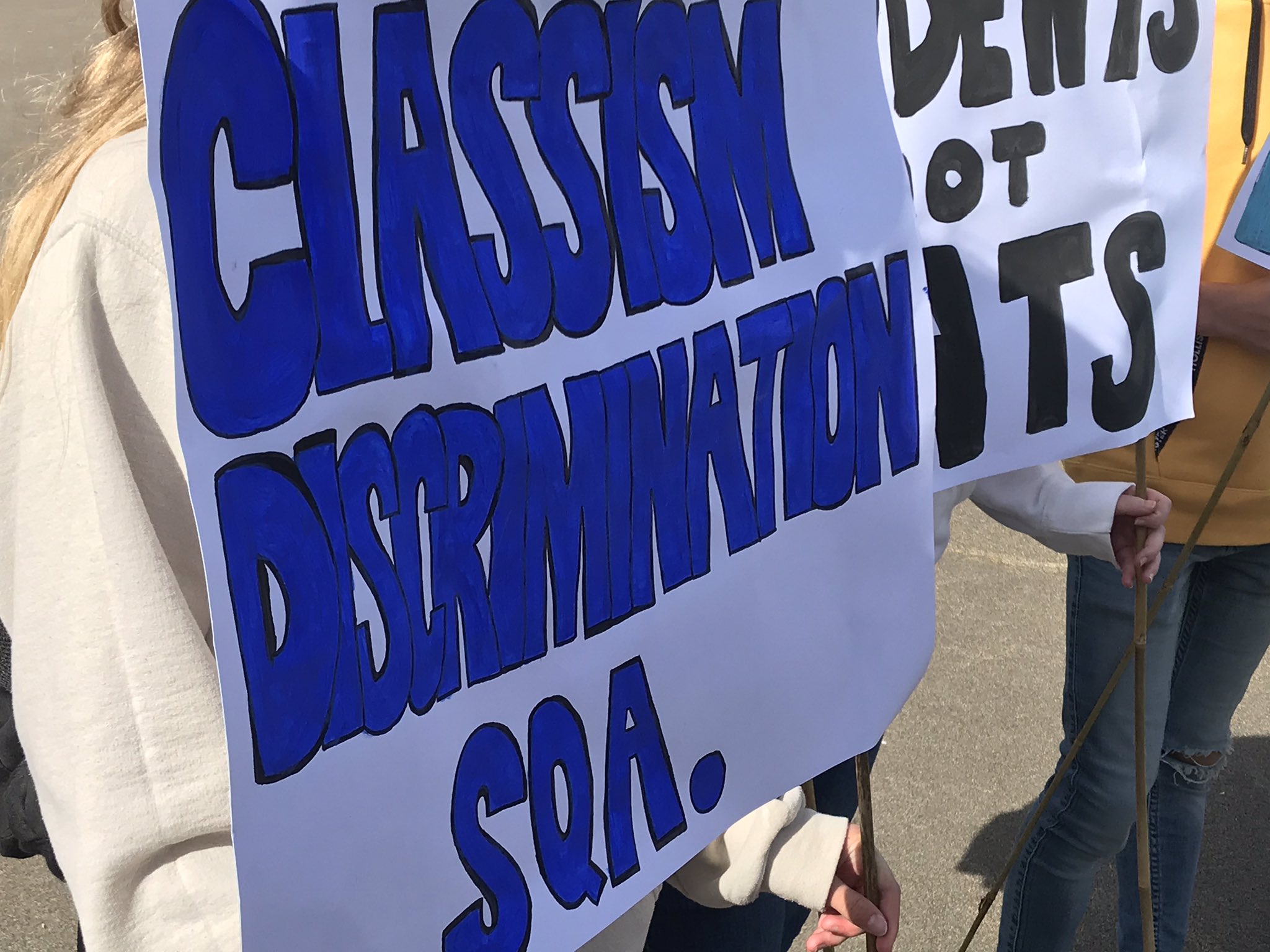
A key factor can be found in the SQA 2020 Awarding Methodology Report, which states that: “A centre’s 2020 estimated attainment level for each grade was assessed against the centres historical attainment for that grade on that course.”
This can be seen in the results. In every deprivation bracket, the percentage of students who got a passing grade is closer to the percentage that got one last year than the number that teachers predicted.
This has further enforced the educational divide between the wealthy and working class who – due to their material situation – do not perform as well in education.
The lower grades many students received may prevent some from attending further education and improving their lives, leaving them trapped in poverty. All this while the students from wealthier areas remain largely unaffected. In some cases, better-off students have even benefitted from this situation.
Opposition politicians have been quick to criticize the Scottish government and SQA. Green MSP Ross Greer has “requested that the SQA appear before Parliament’s Education Committee immediately to justify themselves and their system”.
Scottish Labour leader Richard Leonard, meanwhile, has called the results shambolic. Leonard has accused the SNP government of “endorsing a system which has institutionalised the attainment gap in our schools”.
John Swinney has defended the results by saying moderation was needed to prevent a large increase in the number of students getting passing grades. Journalist James McEnaney summed up Swinney’s comments best by saying: “Unless we took action, poor kids would have done much better than usual and we didn’t want that.”
Inequality
Despite the attitude of some critics, this year’s exam results are not just the result of a mistake by the Scottish government and SQA. Rather, this is a problem inherent to the capitalist system.
Under capitalism, there will always be competition in education. When a school attended by working-class kids does unusually well, or when a school attended by the children of the rich does worse than usual, ‘moderation’ comes to save the day and enforce the status quo.
The class background of each new generation thus determines their future, with the class-based education system under capitalism helping to ensure there is a ready supply of exploitable labour.
The only way to end this inequality in education is to end the system itself. The capitalist economic system must be replaced so that every student can get the best possible education, no matter where they live or how wealthy their parents are.
Only through the socialist transformation of society can all of the impediments of poverty be removed and a quality education at all levels be guaranteed for all students.

